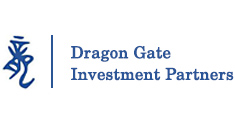In the last few months, the pandemic has created a volatile and challenging economy. Several small businesses have been forced to shut down due to severely curtailed sales and crashing revenue. Meanwhile, businesses that have survived are looking ahead to be better prepared for the next downturn.
To this end, 14 industry experts from Forbes Finance Council (including Marc Blythe) share specific steps businesses can take to shore up their finances and create a stronger foundation to face the next economic crisis.
1. Create a dynamic forecasting model.
Move toward a variable-cost business model that can dynamically scale up or down to nimbly adjust to changes in demand. This would include creating a dynamic forecasting model to facilitate decision-making. – Marc Blythe, Blythe Global Advisors, LLC
Finance pros from Forbes Finance Council share strategies to help you get your business ready for financial downturns. Photos courtesy of the individual members.
2. Build up your liquidity.
There is no way to recession-proof a business. That being said, I think the No. 1 thing businesses should focus on is building up liquidity. In recessionary times, cash is king. Many businesses run tight cash flows, which makes disruptions such as we’re seeing particularly damaging. Not having sufficient liquidity – for whatever reason—is a recipe for disaster. – Joshua Strange, Good Life Financial Advisors of NOVA

3. Cut non-revenue-generating expenses.
Get revenue up first. Then clean out nonproductive staff members, and cut any expenses that aren’t producing ROI. Automate and systematize everything possible. Get six months built up in reserves. The downturn was not a downturn for everybody; for those who did experience it that way, I recommend implementing these points and looking at what others did to avoid the downturn altogether. – Jerry Fetta, Wealth DynamX
4. Carefully track monthly cash flow.
The No. 1 thing you can do is know your numbers. Effective cash flow management is key, especially in times of economic uncertainty. Start by looking at your recent revenue expenses to help estimate your needs for the future. Leveraging a cash flow management tool is a great place to start tracking money coming in and out each month. This process will allow you to get ahead of issues before they arise. – Jenn Flynn, Small Business Bank at Capital One
5. Tighten up invoicing terms and look into credit.
I recommend two things. First, ensure invoicing terms are tight. The first thing many clients do in a downturn is to extend their payables, which kills cash flow. Second, seek a business line of credit, which requires incorporating and having a business bank account. Many of our small-business freelancers found out the hard way during the recent PPP program that they weren’t eligible for business credit. – Hussein Ahmed, Oxygen
6. First understand if recession-proofing is possible for your business.
Businesses must be very disciplined to weather a recession. First, you must determine if your business has the potential to be recession-proofed – you must know if you are at recession risk. If your business can be recession-proofed, reserving 25% of monthly profits in a rainy-day fund is a must. Businesses that can’t be recession-proofed, such as retail, need to keep an eye on inventory and cash flow. – Joseph Safina, Safina Asset Management
7. Regularly add to your emergency fund, and build up your online presence.
While nothing can make any business 100% recession-proof, there are some key things we must do to prepare for the next downturn. The most important one is regularly adding to your emergency fund. Poor cash flow is the main reason businesses fail. Innovation is also key if you’re to continue growing and expanding. Never depend on in-person, local clients only – you need an online global presence now. – Gabriela Berrospi, Latino Wall Street
8. Take a closer look at your staffing.
Reanalyze your staffing needs for 2021. After a crazy 2020, many businesses are expecting better times in 2021, but what happens if this doesn’t occur or the recovery is slow? Consider keeping fewer people, but working them harder and paying them more for it. If things pick up, then add people. If they don’t, then your team should be right-sized, and you won’t have carried unproductive people. – Chris Tierney, Moore Colson CPAs and Advisors
9. Diversify offerings.
Be prepared to pivot your business model, particularly if you have critical dependencies on in-person interactions. You should diversify product offerings to hedge risks, and pivot early and often. – Jeanette Quick, Gusto

10. Invest in resilience training.
The pandemic put people under a thick cloud of fear, which narrows the vision and debilitates us from seeing options we might employ to overcome adversity. Resilience helps us push aside fear and explore ideas to triumph over hard times. Resilience gives us the space to dream bigger dreams and then take the necessary risks to make them real. – Brian Henderson, Whitnell
11. Double down on your core business.
Businesses should focus on their core business instead of investing a large amount of money in attracting new clients or in new products and services. Even though taking risks might be rewarding sometimes, there is much uncertainty during and anticipating a downturn or a recession. Investing in current clients whom you already know and trust is relatively safer in the current situation. – Lijie Zhu, Dragon Gate Investment Partners
12. Stay in close communication with customers.
Listen to what your customers want from you. Have meetings on product roadmaps and communicate often to pivot your business toward current and future demand, not past successes. – Dave Sackett, ULVAC Technologies, Inc.
13. Maintain solid vendor relationships.
When it comes to vendors and creditors, you now know who your friends are. Make sure you keep those relationships strong and let them know the health of your business. Refer business to them, and be a good citizen and customer. There will again come a time when you will need their trust and flexibility. – Aaron Spool, Eventus Advisory Group, LLC
14. Keep your finger on the pulse of your industry.
Find ways to streamline and optimize, especially financially. Get lean and get smart about where you’re spending, saving and investing. Keep your finger on the pulse of your industry, and don’t let others evolve faster than you. Even the best, most prepared businesses can become “nonessential” if they fail to evolve at the pace of their competition or customer expectations. – Julio Gonzalez, Engineered Tax Services, Inc.
This article originally appeared on 23 November 2020 at forbes.com

Forbes Finance Council Is An Invitation-Only Organization For Senior-Level Financial Services Executives And Leaders. Members of this Expert Panel are respected leaders and executives who are selected for the council based on the depth and diversity of experience in the financial services industry.
To learn more about Blythe Global Advisors, its solutions and BlytheTeam®, contact marc@blytheglobal.com or call 949-757-4180.














